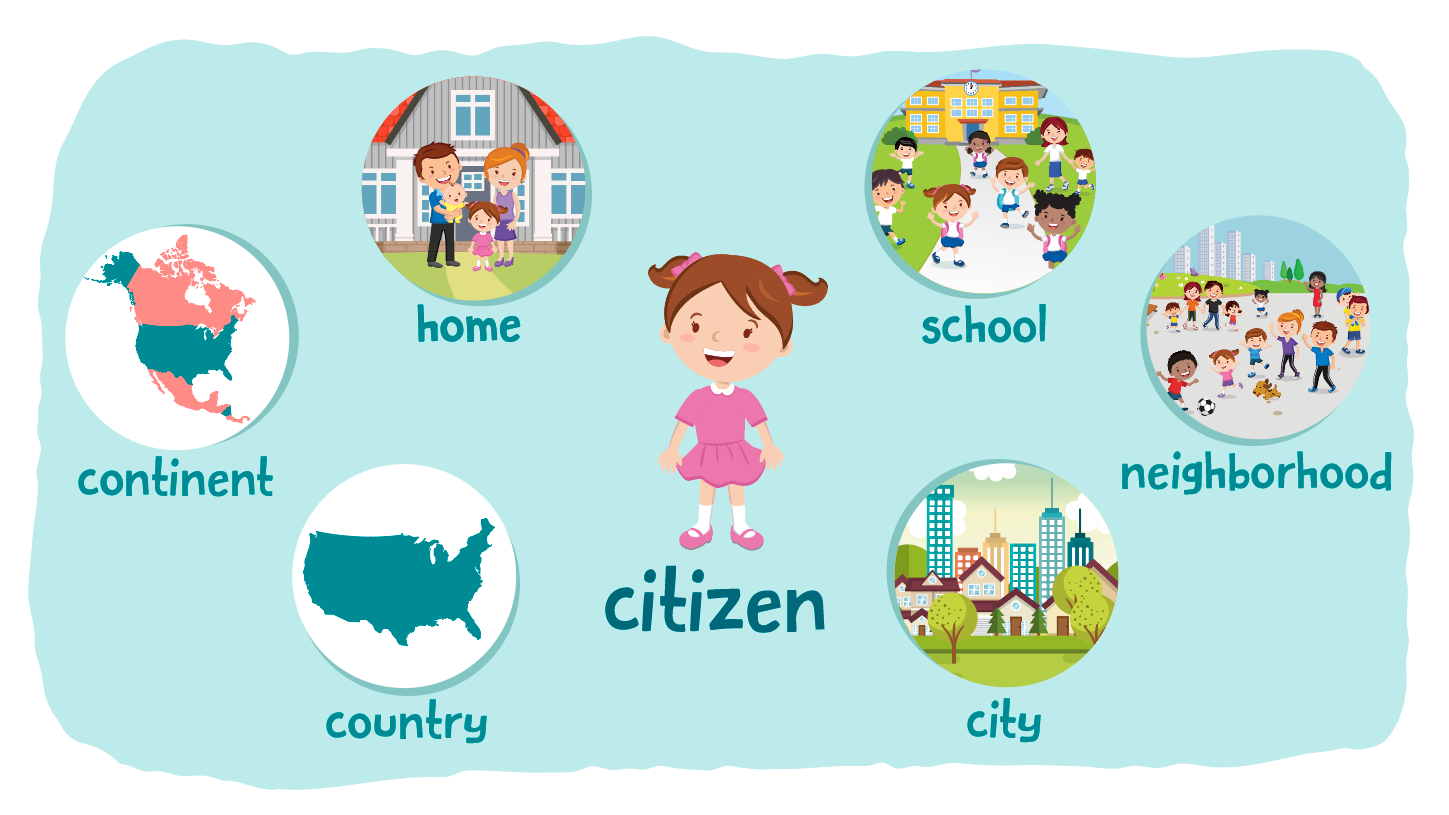Phonological awareness Worksheets for Ages 5-7
10 filtered results
-
From - To
Unlock your child's reading potential with our Phonological Awareness Worksheets for ages 5-7! Designed to enhance vital literacy skills, these engaging worksheets focus on sound recognition, blending, and segmentation. Ideal for young learners, they promote phonemic awareness through fun activities that capture children's imaginations. Our resources are perfect for both classroom settings and home study, providing step-by-step exercises that nurture cognitive development. Whether your child is just starting to read or needs a bit of extra practice, our phonological awareness worksheets will empower them with the skills needed for reading success. Start their educational journey today!
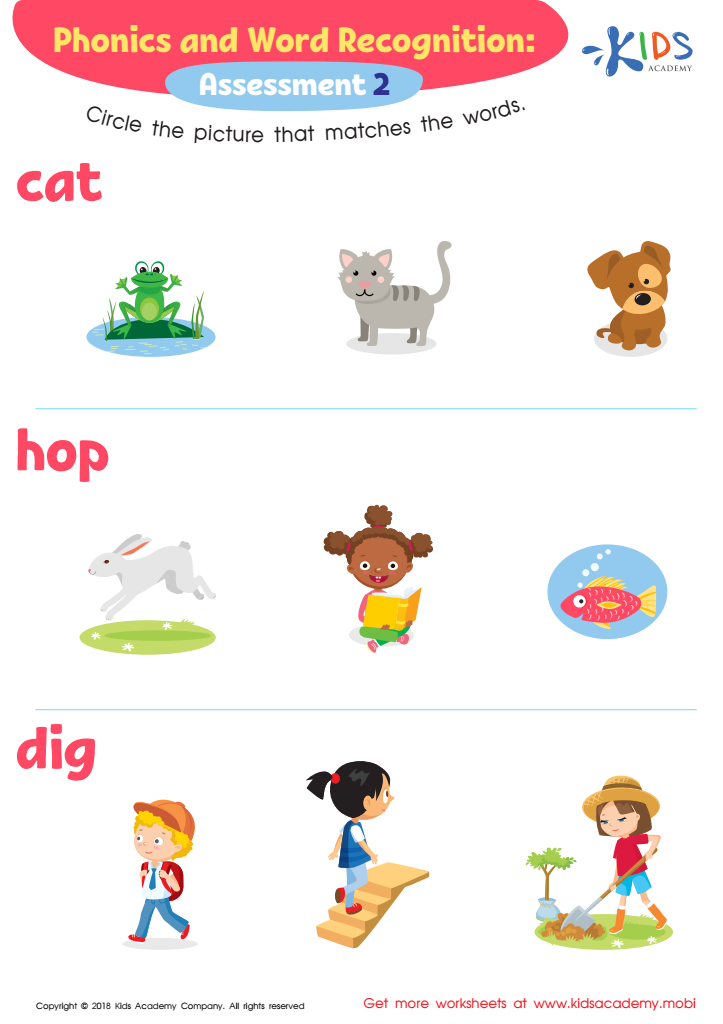

Phonological Awareness: Assessment 2 ELA Worksheet
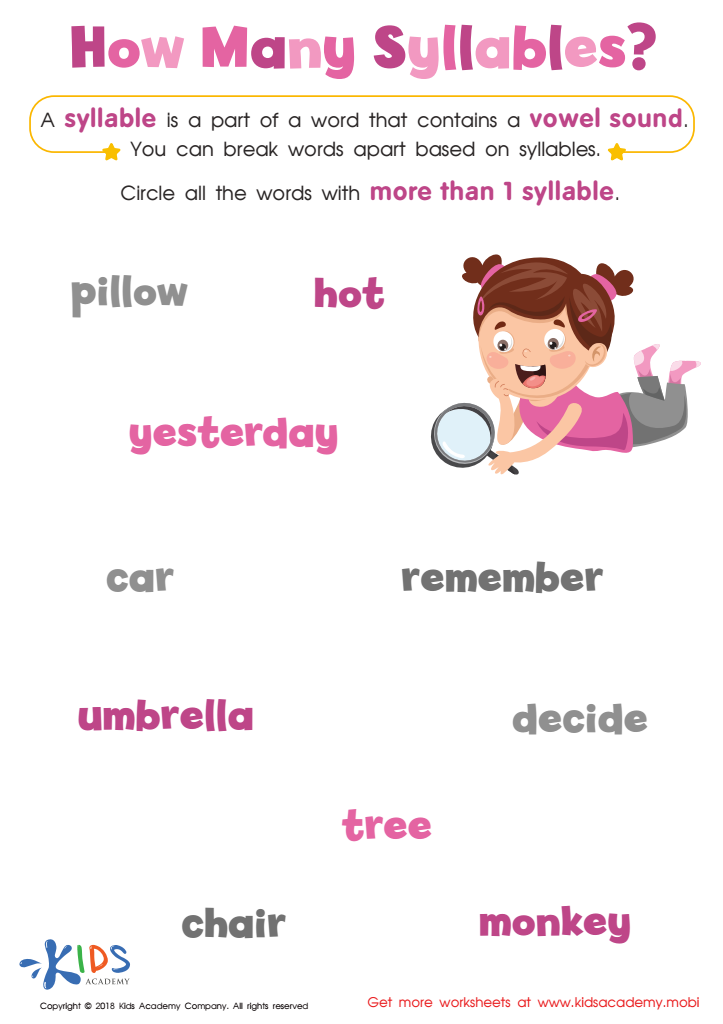

Reading: How Many Syllables Worksheet
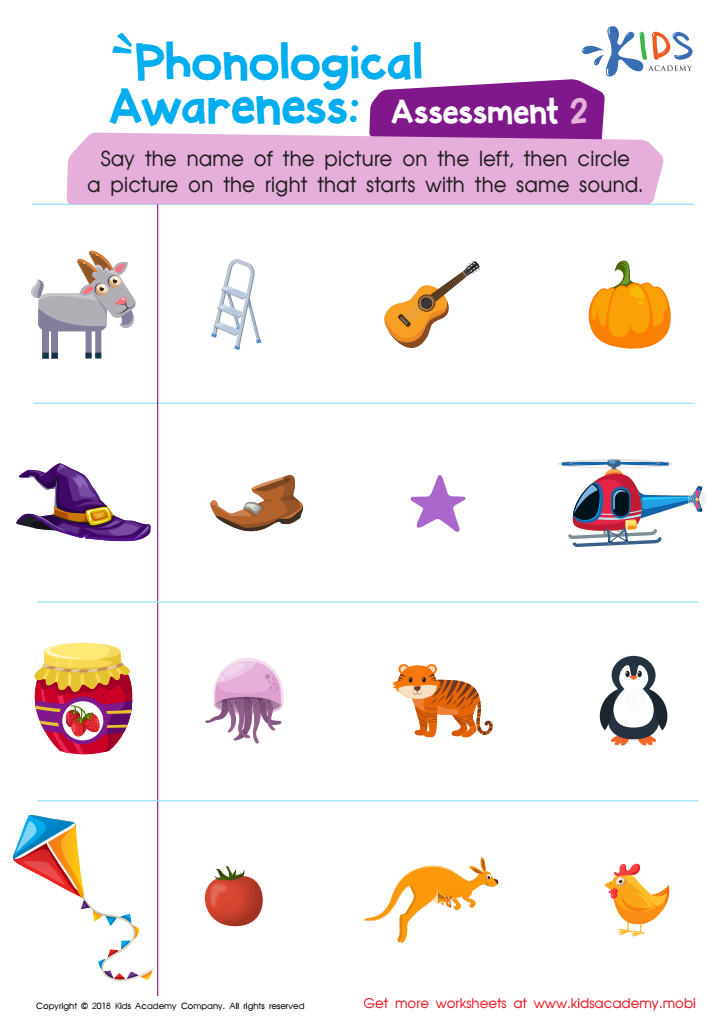

Phonological Awareness: Assessment 2 Worksheet
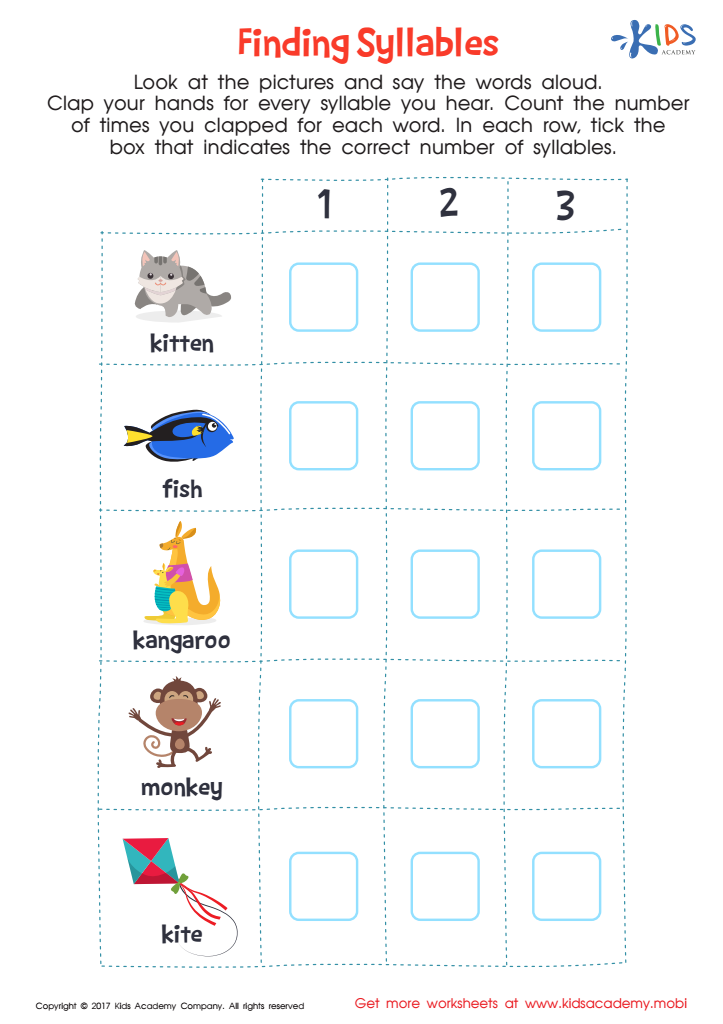

Finding Syllables Word Structure Worksheet
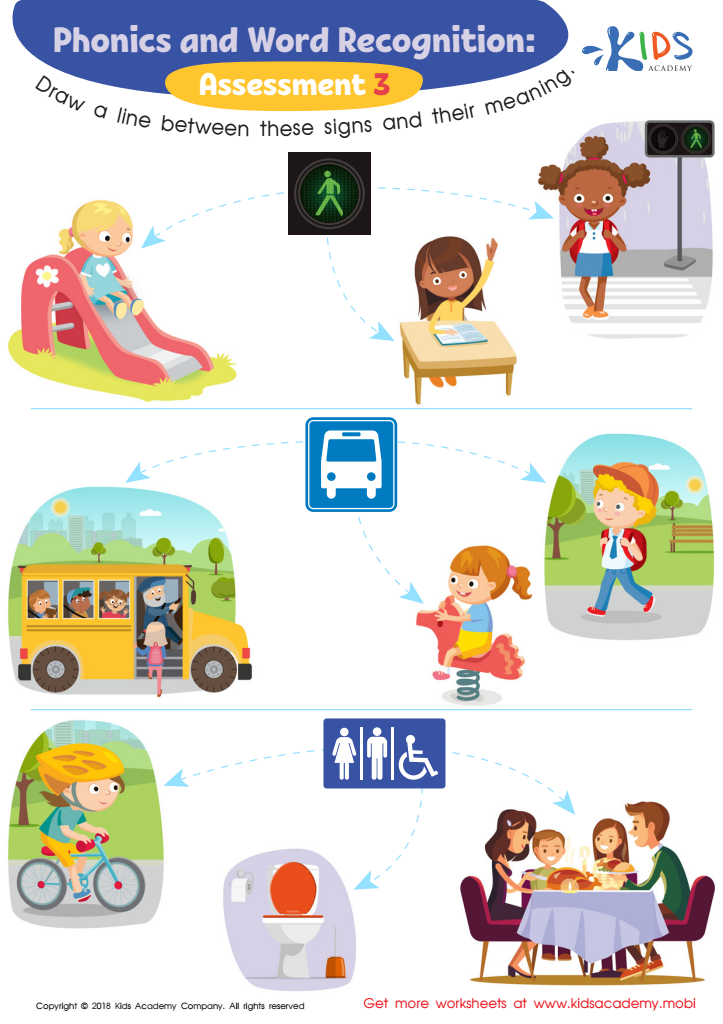

Phonological Awareness: Assessment 3 ELA Worksheet
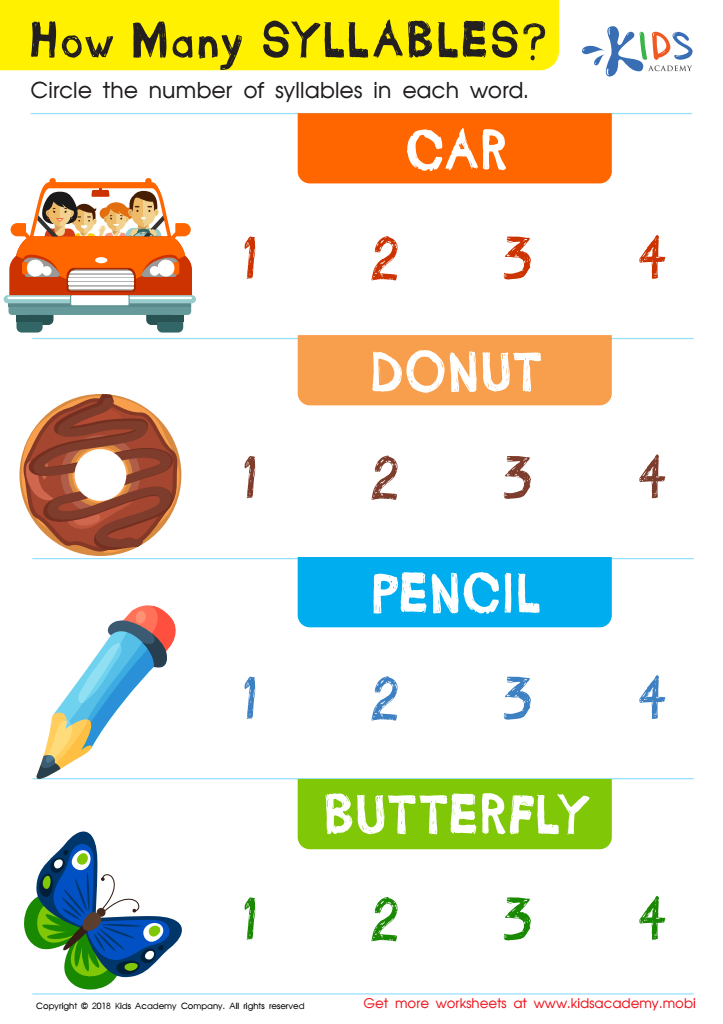

How Many Syllables? Worksheet
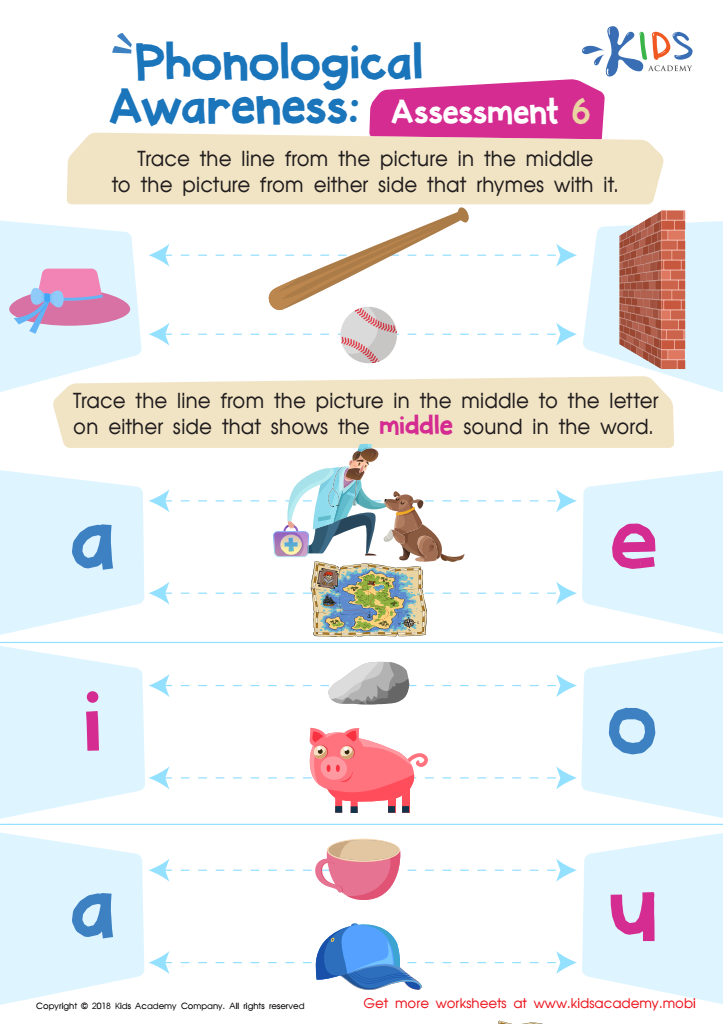

Phonological Awareness: Assessment 6 Worksheet
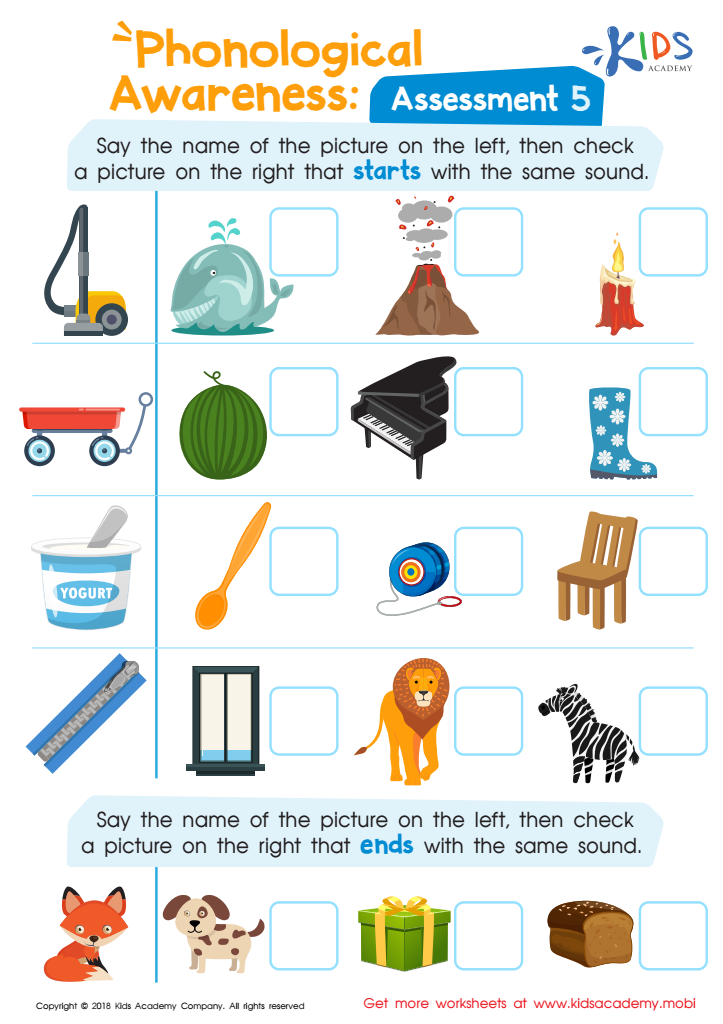

Phonological Awareness: Assessment 5 Worksheet
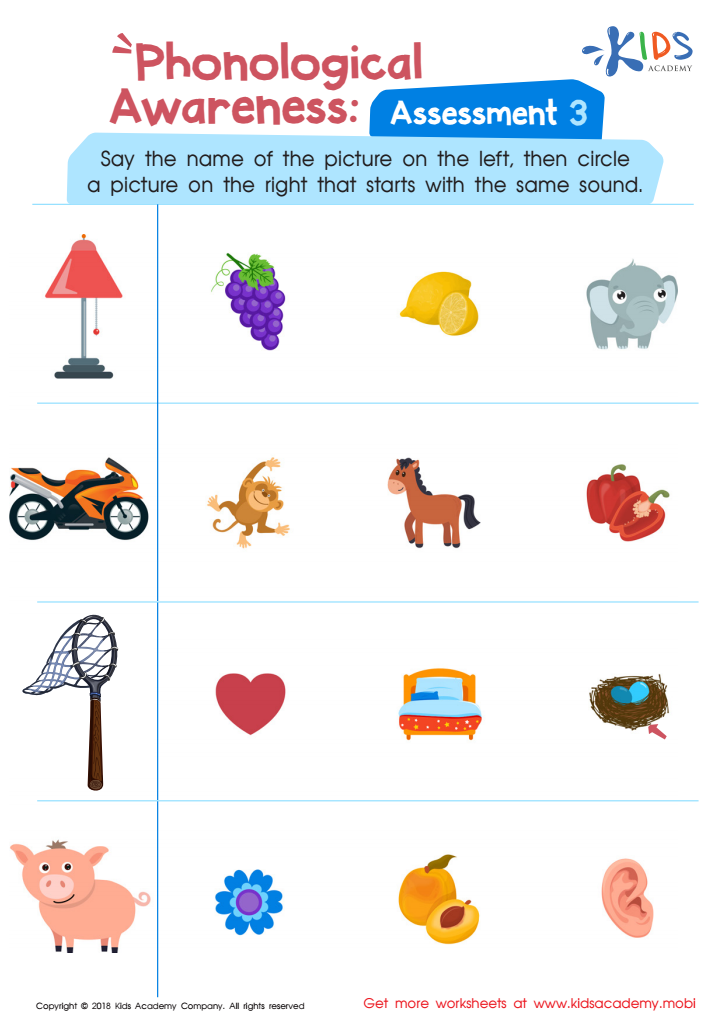

Phonological Awareness: Assessment 3 Worksheet
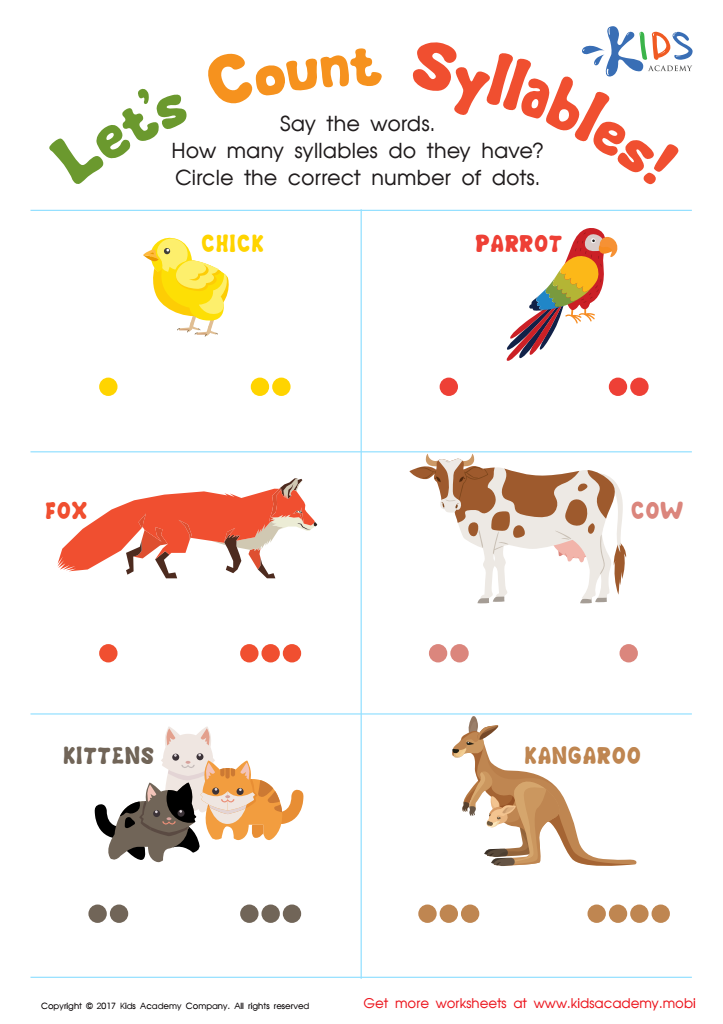

Lets Count Syllables Worksheet
Phonological awareness is a crucial skill for children aged 5 to 7, as it lays the foundation for successful reading and writing. This skill involves recognizing and manipulating the sounds of spoken language, including rhymes, syllables, and individual sounds, which is essential for decoding words. Parents and teachers should care about developing phonological awareness because it greatly impacts literacy development.
Children who possess strong phonological awareness are more likely to excel in reading, as they can break down words into their component sounds and blend them to form words. This ability enhances their vocabulary, comprehension, and overall academic performance. Conversely, children with weak phonological skills are at a higher risk for reading difficulties, which can lead to frustration and lower self-esteem.
Moreover, early intervention is key; identifying and supporting phonological awareness skills in this age range can prevent long-term challenges. Engaging activities such as rhyming games, chanting, and sound matching can be fun ways to nurture these skills at home or in the classroom. By prioritizing phonological awareness, parents and teachers can foster a love for reading and set children on a path to academic success, ultimately benefiting their educational journey and personal growth.

 Assign to My Students
Assign to My Students








.jpg)

